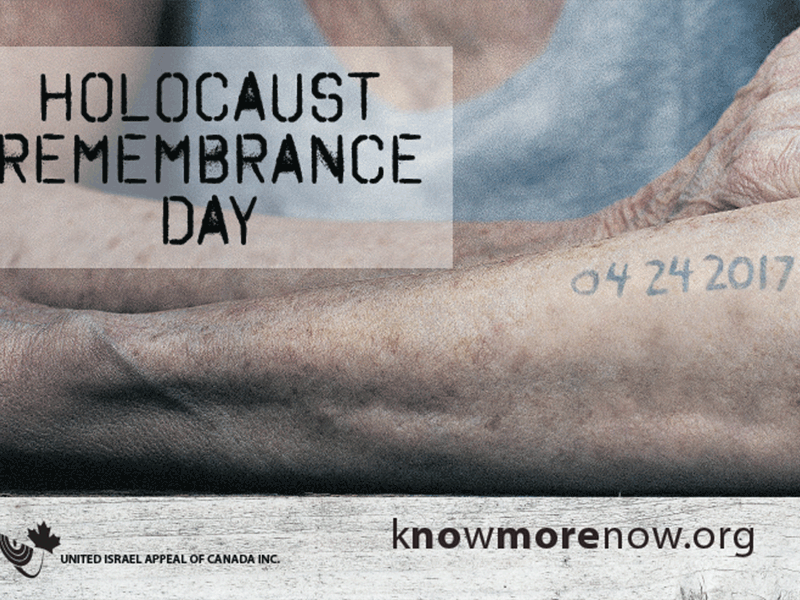An advertising campaign, which shows an elderly woman’s arm tattooed with the date of Holocaust Remembrance Day (April 24 this year), has generated some unexpected controversy on social media.
The ad, designed by a woman whose family survived the Holocaust, ran in the National Post and other daily newspapers across the country on April 21. The print ad carries the logos of the March of the Living and United Israel Appeal of Canada.
The ad and a 30-second video direct viewers to a website, knowmorenow.org, which has links to a number of human rights organizations.
“We came up with this idea of using this visual as a powerful way of communicating the date, so people would remember the date,” said Patty Zoldos, senior writer at the ad agency Anderson DDB.
Zoldos and senior art director Mario Amaral designed the website to “get people talking about the Holocaust” and provide information about other modern genocides.
“We thought it was time for us to do something beyond donating to things,” she said. Zoldos cares for her mother and aunt, both of whom survived Auschwitz. The idea came to her while she was thinking about the rising tide of intolerance and anti-Semitism.
The video and the print ad were produced for free by people who felt strongly about the campaign, said Zoldos. The newspapers also donated the space for the ads.
READ: REMEMBER JEWISH ACTS OF RESISTANCE
However, not everyone has reacted positively to the images and a lively debate has erupted on Facebook about whether iconic Holocaust images should be altered. Musician Joshua Dolgin, also known by his stage name Socalled, said he was shocked when he saw the ad in the newspaper in his parents’ home. He re-posted the ad on Facebook, calling the campaign “patently absurd, truly tone-deaf.” Others joined the discussion, criticizing the photo.
“You don’t need to come up with dramatic images or shocking images about the Holocaust. There’s plenty that came out of the Holocaust to draw on,” said Dolgin, who fuses hip hop, klezmer and other genres in his music. “What’s more shocking than a human being being branded by the Nazis? To think that you need to make it more shocking, there’s no rationale for it that I can see.”
Eli Rubenstein, national director of the March of the Living, said he found the ads “compelling” and “evocative.” More importantly, he said, the survivors he consulted did as well.
Speaking from Warsaw, where he is leading the annual March of the Living, Rubenstein said he showed the proposed ad to Toronto’s March of the Living Committee and to a number of survivors, nearly all of whom were in favour of it.
“Had the survivors not liked it, I wouldn’t have gone with it,” he said.
READ: ELISHA WIESEL URGES JEWS NOT TO BE SILENT
The issue of tattoos is controversial, he said, with some survivors removing them, and others keeping them as “a badge of honour.” And any artistic representation of the Holocaust creates disagreement, he noted.
“There’s nothing we can do in the Jewish community that someone’s not going to object to,” he said. “That’s part of being Jewish.”
Meanwhile, the website has also logged supportive comments, with at least one person sending in a photo of his late father-in-law’s tattooed arm.
Linda Kislowicz, president and CEO of Jewish Federations of Canada-United Israel Appeal, said about the ad, “In a world where anti-Semitism is on the rise, our commitment to preserving the memory of the Holocaust, to educating the next generations through impactful experiences such as March of the Living, and to joining others in their efforts to build awareness and understanding in the wider community is more imperative than ever.”







